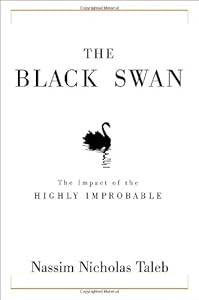It's a while since I posted about systems but I saw an article 'Black Swan-blind' by Nassim Nicholas Taleb in the New Statesman dated 5 July 2010, page 29. The article is about economics and the recent collapse of the banking system. Taleb's book, The Black Swan: the Impact of the Highly Improbable, describes those events that
- are outside the realm of regular expectations
- carry an extreme impact
- human nature makes us concoct explanations after the fact.
I haven't read his book but it certainly looks as if it might have something to say to the churches. Perhaps during the twentieth century, the churches were able, to some degree, to separate themselves from the catastrophes of church history. I suspect the third point still holds sway (the sign of the historic episcope being one example of explanations after the fact).
Taleb writes:
I explained in the book that the best teachers of wisdom are the eldest, because they have picked up invisible tricks that are absent from our epistemic routines and which help them survive in a world more complex than the one we think we understand.
He identifies three aspects of natural systems which make them robust:
- redundancy - if there is a disaster, systems with redundancy are more likely to survive. They may be disadvantaged in normal times by the costs of carrying the redundancies but this is compensated when things become extraordinary.
- diversification - the more complex things are the more likely they are to survive. So, a country that specialises in one commodity is more likely to go under in a crisis.
- smallness - small things that are self-contained don't bring down everything else when they are in trouble. Lots of little things are inherently more robust.
The obvious question is whether the quest for unity is likely to be good for the church. It was the urge to tidy up financial systems, to introduce efficiencies, to ensure everyone subscribed to the same ideology that brought the system down. If all believe the same thing, where does accountability come from?



Comments